 |
|
Researchers learn from
bones in Umm Jirsan Cave
|
By John Pint “When will an archaeologist finally set foot in a Saudi cave?” This is a question I asked myself over and over during the thirteen years I spent exploring caves in Saudi Arabia. After discovering the 2000-year-old “naturally mummified” body of an Arabian red fox (Vulpus vulpus arabica ) in Murubbeh Cave, we realized that desert caves can provide the perfect environment for preserving bodies, bones, pots, scrolls and much, much more. 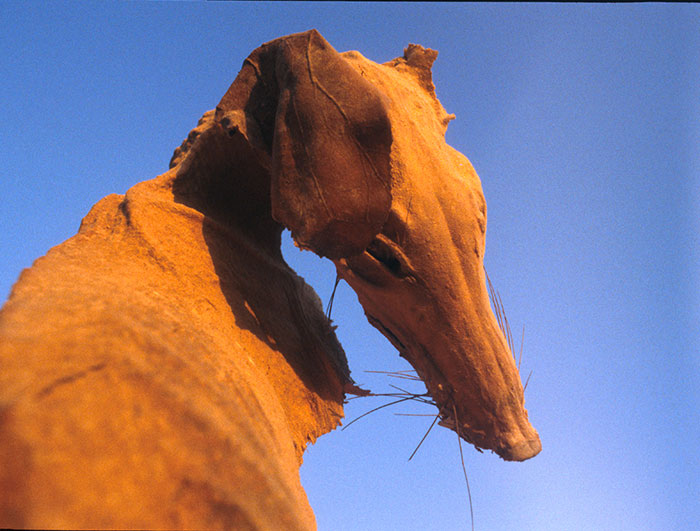 In fact, we found great quantities of bones in almost every cave we explored. What better place to look for traces of those ancestors of modern humans who left Africa 70,000 years ago, crossed the Red Sea and wandered about what is today called Saudi Arabia? 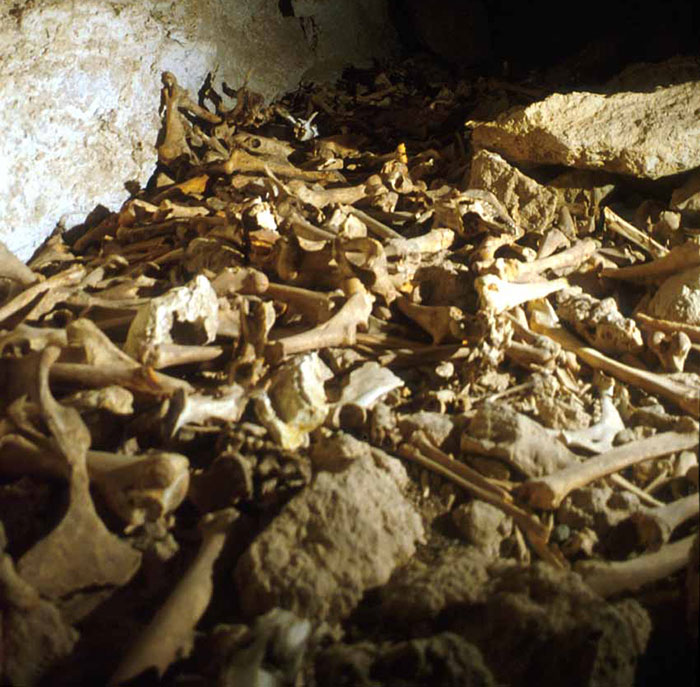 Bone cache in Black Scorpion Cave
Now, at last, a team of scientists have not only stepped into a Saudi cave, but have conducted a fascinating study of 1200 bones chosen from among hundreds of thousands found at the far end of Umm Jirsan lava tube. 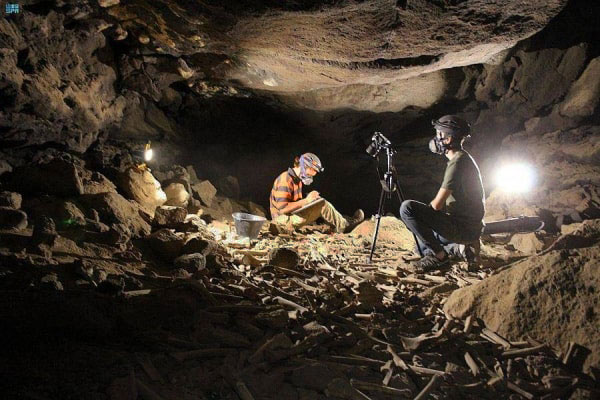 Members
of the Palaeodeserts Project working inside Umm Jirsan lava tube.
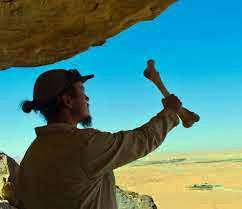 The
chief author of the report is Dr. Mathew Stewart of the Max Planck
Institute for the Science of Human History in Jena, Germany. The
chief author of the report is Dr. Mathew Stewart of the Max Planck
Institute for the Science of Human History in Jena, Germany.His multidisciplinary team of researchers is studying the effect of environmental change on early humans and animals that settled or passed through this area. For a popular account of this team’s discoveries, see Hyenas Left a Massive Pile of Bones in a Saudi Arabian Lava Tube. The team’s paper appears in the journal Archaeological and Anthropological Sciences under the title: Taphonomy of an excavated striped hyena (Hyaena hyaena) den in Arabia: implications for paleoecology and prehistory You can download it here as a PDF. What else is waiting for scientists in Saudi Arabia's caves? Find out here. 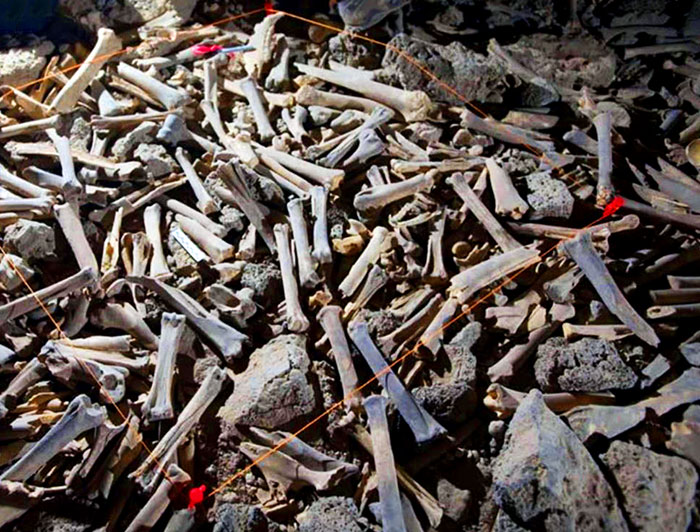 Which
1200 bones shall we choose? Photo Mathew Stewart
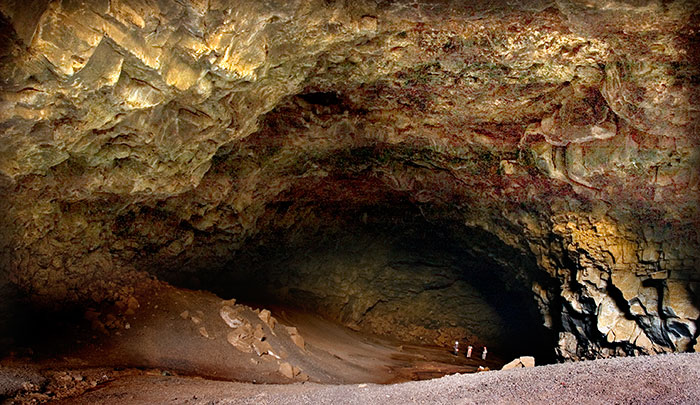 The
entrance to the western passage of Umm Jirsan Cave. The big cache of
bones was found at the far end of this passage.
Text and Photos © 2021 by John & Susy Pint unless otherwise indicated. |